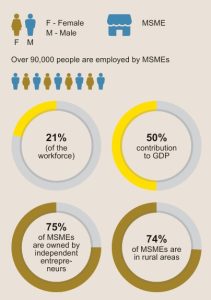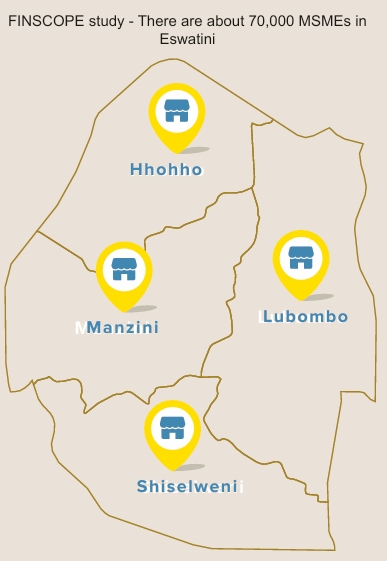By Bahle Gama
Macro, Small and Medium Entreprises (MSMEs) continue to play a vital role in Eswatini’s economic landscape, contributing significantly through job creation and GDP growth.
According to the Eswatini National Policy for MSMEs 2024-2029, a study by FINSCOPE reveals that over 90,000 people, accounting for 21 per cent of the workforce, are employed by around 70,000 MSMEs, contributing a remarkable 50 per cent to the country’s GDP.
Despite this impact, the country’s entrepreneurship ecosystem remains underdeveloped. A majority of MSMEs operate in the informal sector, driven largely by necessity due to high unemployment rates and limited job opportunities.
RELATED: MSMEs applaud Eswatini International Trade Fair 2024 for business growth
About 75 per cent of MSMEs are owned by independent entrepreneurs, often creating no additional jobs, and 74 per cent are located in rural areas.
The FinScope Survey highlights that 75 per cent of all MSMEs are informal, with reasons such as the micro nature of businesses and the inability to afford registration costs cited by 60 per cent of informal firms.
Most MSMEs are concentrated in the wholesale/retail sector (40 per cent), with fewer enterprises involved in value addition.
In terms of employment, the agriculture sector, particularly crop cultivation, dominates economic activity.

The policy states that while the government, supported by development partners, has established various MSME support programs, entrepreneurs still face challenges that hinder growth and sustainability.
There’s a notable absence of high-growth enterprises, with only about 1 per cent of local enterprises classified as medium-scale, illustrating a clear “missing middle.”
Access to finance remains a major obstacle, especially during the early stages of business development.
Additionally, cultural issues, such as risk aversion and a preference for job security over entrepreneurial ventures, contribute to the stagnation.
RELATED: December officially here! MSMEs gear up for booming festive business
Many of Eswatini’s brightest minds choose corporate roles or abandon their business dreams when stable employment opportunities arise.
Informality is another significant barrier, limiting productivity and potential tax revenue.
The policy aims to tackle this by increasing awareness of market opportunities and available support programs to encourage informal entrepreneurs to formalise their businesses and tap into existing opportunities.


